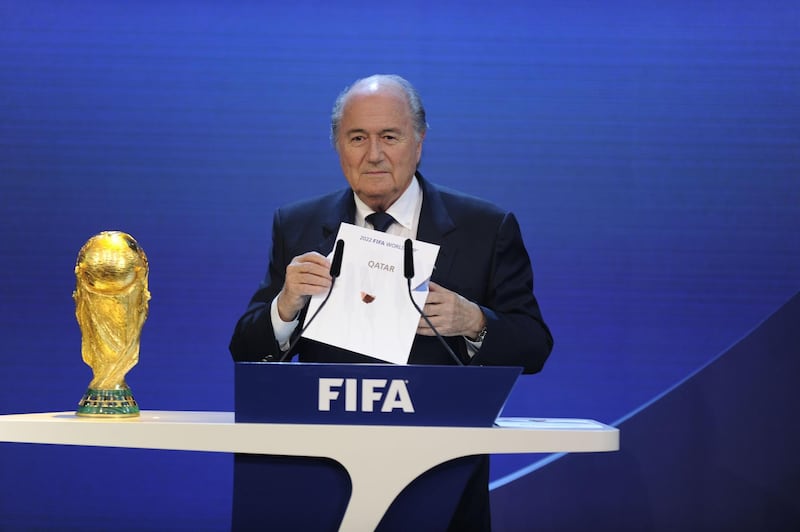Qatar's World Cup organisers have ridden out the initial shock caused by the country's continuing confrontation with its powerful neighbours but experts warn bigger crises may lie ahead.
Fifa is studying a proposal to expand the 2022 football tournament from 32 to 48 teams, an increase that could pose the greatest risk yet to Qatar's plan to host the first World Cup in the Arab world.
Qatar has already come under scrutiny over allegations of corruption and human rights abuses but that may be nothing compared with pressures it faces in the run-up to 2022.
"I think Fifa's proposal represents the biggest threat to the tournament simply because it would wrong-foot Qatar into sharing the tournament with other countries," said Simon Chadwick, a sports and geopolitics expert at Britain's Salford University.
Sharing the cup, he said, would represent "something of a defeat for Doha".
In the year since Saudi Arabia, the United Arab Emirates and their allies, including Egypt, froze relations with Qatar – accusing it of supporting terrorism and being too close to Iran – World Cup organisers have proved resilient.
The embargo, in place since June 5, 2017, cut off the supply of construction materials from Saudi Arabia and the UAE but they were swiftly replaced by imports from Malaysia and China.
By the end of this year, three of the eight stadiums earmarked for 2022 will be completed.
The design for Lusail, the stadium set to host the World Cup 2022 final, is expected to be unveiled by the end of the year.
Qatar's colossal weekly budget of $500 million (Dh1.8 billion) on World Cup infrastructure has been used to build new roads, hotels, neighbourhoods, even towns – its $36bn metro system is on track to open next year.
"Our projects are going ahead as scheduled," said Hassan Al Thawadi, one of the World Cup organisers, after the crisis began.
"This is no risk in relation to the hosting of the World Cup."
And while gas-rich Qatar has proved it can weather the economic consequences of the crisis, the politics of the boycott have proved more difficult. And football has found itself in the firing line.
____________
Read more:
Qatar puts its political ambitions ahead of its people, UAE's Gargash says
Terrorist activity in Bahrain falls after Qatar boycott, foreign minister says
____________
Officials in Saudi Arabia and the UAE have openly called for Qatar to be stripped of the World Cup.
A Swiss investigation into the controversial awarding of the 2022 tournament to Qatar is continuing.
Qatar's sports broadcaster beIN Media – which has exclusive Middle East rights to televise this year's World Cup – has found itself the victim of a vast pirating operation allegedly based in Saudi Arabia.
"The crisis is not about football but the World Cup does seem to have become a tool in the ongoing stand-off," said Kristian Ulrichsen, a fellow at Rice University's Baker Institute.
"It would be an enormous coup for the Saudis and Emiratis if they could do anything to throw Qatar's hosting rights into question."
The political crisis has also seeped into the South West Asian Football Federation – launched in Saudi Arabia in May.
Members of the new federation include Saudi, the UAE and Bahrain but not Qatar.
Qatar has bought time on the highly controversial issue of labour, appeasing some critics by agreeing to a vast reform programme.
But should Fifa at its June 13 congress in Moscow move to expand the number of teams in the 2022 cup, Qatar would have to tackle a heavily expanded workload on a tight timeline.
A 50 per cent increase in teams would strain Qatar's ability to host the tournament.
While Doha initially bid for 12 stadiums, it is only building eight.
Questions have also been raised over how the country will accommodate the up to 1.5 million fans expected to attend the event – and that's before 16 teams are added.
Optimists suggest one solution could be to share the tournament with others in the region – a face-saving way for Qatar, Saudi and the UAE to rekindle ties with games in all three countries.
But only one nation has so far offered to help Qatar in 2022 - Saudi Arabia's arch-enemy, Iran.





